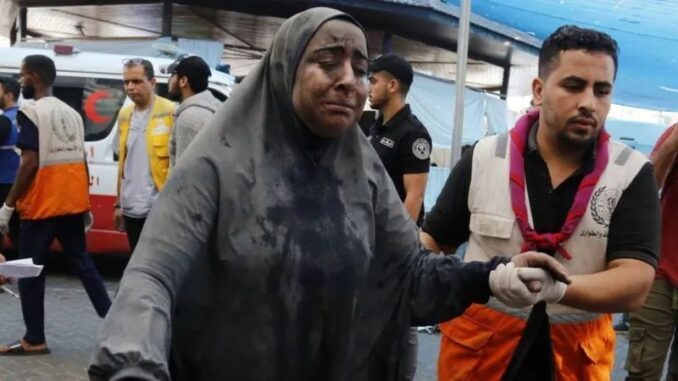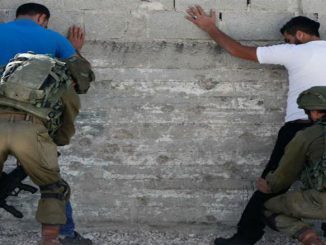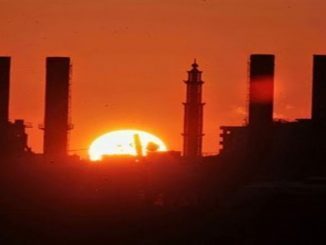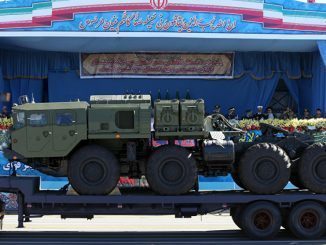
A report by the British Broadcasting Corporation highlights the dire conditions in Gaza and the West Bank following Israel’s offensive on 7 October.
The BCC report highlights the overwhelming extremely poor conditions the few remaining hospitals are operating under in Gaza amidst relentless Israeli air strikes, and settler violence and apartheid that Palestinians in the West Bank are living through.
The report by BBC, titled “Gaza surgeon: ‘It broke me, not being able to save so many innocent lives'”, cites Sara, a Gazan young female surgeon as saying: “I would describe this period as the worst phase of my life, living in hell”.
When Sara Al-Saqqa graduated in August, she made history, becoming Gaza’s first woman surgeon.
“I had lots of goals and ambitions about improving healthcare,” says the 31-year-old. She hoped that one day she would be able to open her own clinic.
But eight weeks later, her thoughts were reduced to one thing: “Hoping my family survives. Everyone’s priorities have changed, and we are just thinking of staying alive now.”
Sara had been working at Gaza’s biggest hospital, Al-Shifa, in the north of the Strip, since she graduated. On 7 October she had a day off and remembers getting ready to see her youngest sister, who is 17, off to school. “But we started hearing bombings, and we didn’t let her go,” she says.
When Sara checked her phone, she saw the news that Hamas had attacked Israel. Its gunmen killed 1,200 people and took about 240 hostages. Since then, Israel’s retaliatory airstrikes and ground invasion have reduced huge swathes of Gaza to rubble, killing more than 15,500 according to the Palestinian health ministry.
Sara was immediately called in to work. When she arrived, she saw “a massacre, with injured people pouring in”.
From the start, the staff were overwhelmed by the sheer volume of people “with severed limbs due to shrapnel and different types of injuries caused by intense burning”.
When Israel began its air strikes, it had told Gazans to evacuate the north and move south saying they would be safer there. But Sara decided to stay. “We worked continuously for more than 34 days without a break, without going home,” she says.
She describes how conditions quickly got worse: “After each bombardment, hundreds of patients would arrive simultaneously and it was impossible to attend to all of them.”
Many more sought safety in the hospital grounds. People were crammed into every available space, cooking bread in the corridors, sleeping on the floor and in cupboards and trying to distract their children with games.
The hospital struggled to get basic supplies such as medicines and sterile gloves and Sara had to decide which patients to prioritise based on their chances of survival. “I felt horrible being absolutely helpless,” she says. “I always did the best I could with barely anything left to treat them with, but it broke me, not being able to save so many innocent lives.”
However, there were glimmers of hope. Sara successfully delivered a baby for the first time after she and the mother were trapped in the operating theatre one night as bombs landed outside.
Sara desperately tried to get a gynaecologist to help but no-one came. By 06:00 they couldn’t wait any longer. “I prayed to our Lord to help me and save both the mother and the child,” she says.
The baby emerged with the umbilical cord wrapped around her neck, but Sara managed to remove it and delivered the little girl safely. The grateful mother named her daughter after Sara.
One of the hardest things for Sara was the communications blackout, when she was unable to check on her mother, four siblings and grandmother. When the phone lines and internet links went down, they were making their way to Rafah in the south and she didn’t know if they were alive or dead: “I couldn’t function or continue, I couldn’t do anything.” She was terrified they would be bombed.
As the conflict intensified and she heard her family were safe, Sara’s challenges multiplied. Supplies of food and water ran out and “in the last week, there was no electricity… we survived on the bare minimum”. Something as small as being offered a piece of bread became a moment to rejoice.
When the lights went out she had to navigate the packed corridors by torchlight and performed surgery in near-darkness with the sound of bombs around her. “I would describe this period as the worst phase of my life, living in hell,” she says.
As the bombing grew closer and the Israeli army’s intentions to raid the hospital became clear, Sara was afraid that if she stayed she would die, so she decided to evacuate and head to Rafah to be with her family, who were now sheltering with her uncle.
However, she did not make the journey south alone. She walked with her colleagues and the mother and baby she had delivered.
When the Israeli military raided the hospital, it described it as a “targeted operation against Hamas” saying it had found an “operational centre” there – something Hamas denied.
Describing life for herself and the tide of more than a million displaced Gazans, Sara says: “We don’t have water to drink or food to eat. We don’t have a home. We have been abandoned, sitting in the streets, schools, and squares. Winter has arrived, and we are not prepared, we don’t have clothes, blankets or anything.”
She is still trying to use her medical training when she can. “Every day we go out, roam around and help as much as we can because the shelters and schools need us.”
Sara worries what the future holds for her and her family. “This year was supposed to be my sister’s last year in school before graduating and starting her life, but now we have no idea what will happen.” Like other Gazans, their hopes and dreams have been set aside in place of survival.



